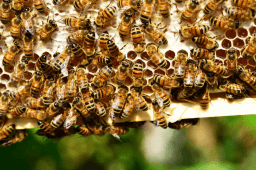World Autoimmune Arthritis Day
World Autoimmune Arthritis Day is observed next on Wednesday, May 20th, 2026 (237 days from today).

World Autoimmune Arthritis Day was established in 2012 by the International Autoimmune Arthritis Movement (IAAM) and will be celebrated each year on 20th May.
Every year, we celebrate World Autoimmune Arthritis Day on May 20th across all time zones around the globe to raise awareness about a range of autoimmune and autoimmune diseases, including inflammatory arthritis.
What is World Autoimmune Arthritis Day?
This special day in our global calendar has been celebrated by AiArthitis to unite and educate people around the world. More than 60 countries, including Australia, are involved in this campaign in different ways.
The goals for this day are as follows:
- Helping more people understand these diseases and how they affect quality of life
- Raise awareness of key symptoms, to help with early diagnosis
- Resolve misunderstandings often associated with these diseases
While COVID-19 means fewer public events, awareness online is still very much ahead at this point. AiArthitis urges people to post about the campaign throughout May and use the hashtag # #aiitism day.
The idea is to post throughout May and work even harder with more posts on May 20th. In this way we can use the internet to promote solidarity and rapid growth in awareness.
Interesting Facts about Autoimmune Arthritis
- It is not a disease of the elderly. Autoimmune arthritis affects people of all ages. With each five people under the age of 65, there are more than three people diagnosed with arthritis.
- Autoimmune arthritis can affect even children and adolescents. 1 in 250 children globally has some type of arthritis or rheumatism, according to the CDC.
- In fact, women got arthritis more popular than men. At least twice as many women have RA as men.
- Experts predict the number of patients with RA could double by 2030
- Arthritis is more common in older women
- Arthritis can lead to other lifestyle diseases such as diabetes, heart disease, and obesity.
- Arthritis cannot be cured but can be well managed with treatment and lifestyle changes.
- Stop smoking, maintain a healthy weight, protect your joints while participating in activities, exercise regularly, and adhere to a treatment regimen to control the symptoms of arthritis.
- Pain in or around a joint or joints that doesn't go away even after a few days is cause for concern. Visit a doctor in such a case.
What is Autoimmune & Autoinflammatory Arthritis?
There are many autoimmune and/or autoimmune diseases, more than 100 to be exact. However, on 20 May, World Autoimmune Arthritis Day focuses on special people who also suffer from inflammatory arthritis. The International AiArthitis Organization calls these diseases 'AiArthitis'.
These are diseases of the immune system that affect the entire body, causing chronic pain (see more about symptoms below). In the early stages, they significantly affect the joints, but the inflammation spreads through the bloodstream, to organs, tissues, and eventually to the entire body, which are sometimes called invisible disabilities. Moreover, they can affect people of all ages, including children.
The comparison between autoimmune and autoinflammatory in Arthritis disease:
These diseases are not all alike, but they can present some of the same symptoms (such as arthritis). In both cases, the immune system misperceives a person's healthy cells as a threat and then attacks them.
While autoimmune and autoimmune diseases are both the result of a malfunction of the immune system, in each case it's a different part of the immune system.
1. Innate immunity (autoinflammatory disease)
We are born with an innate level of immunity built into our genes. But when a gene mutation occurs in these gene building blocks, it can lead to autoimmune diseases.
Some of the key factors of autoimmune diseases are:
- They usually appear at a younger age, as early as childhood
- Typical symptoms are fever and rash
- These are often the result of mutations in proteins that affect immunity
- Inflammation occurs in episodes with no clear relationship to environmental factors
We acquire and develop our adaptive immunity as we grow older. For example, every time babies get dirty on their hands and eat them, they build up immunity and resistance to foreign substances. These strange substances include bacteria, viruses, chemicals, and even allergens (for example: pollen), can also make us feel sick.
2. Adaptive immunity (autoimmune diseases)
This process is useful for our immune system in developing a memory of these antigens and learns the best methods of attack and resistance. This is how we establish our adaptive immunity, but sadly this process can go wrong and lead to autoimmune diseases instead.
Symptoms of autoinflammatory/autoimmune
People with AiArthitis may have episodes of unwellness that come and go without warning. During these times, some experience only a few symptoms while others will have the entire episode simultaneously.
Below are some common symptoms:
- Severe fatigue: rest and caffeine have no immediate effect on this burnout
- Flu-like feeling: muscle weakness, generalized malaise and nausea
- “Brain fog”: it's hard to connect thoughts and make sense of them
- Fever: often more severe in autoimmune diseases than in autoimmune diseases
- Joint pain: lasts more than six weeks and is not caused by another condition/drug or injury
- Stiffness: severe, even worse after rest or inactivity
- Swollen joints: sometimes the joints are also red and swollen
How about Treatment?
Treatment is evaluated on a case-by-case basis. If you have arthritis along with any (one or more) autoimmune/autoinflammatory symptoms, talk to your GP about referring you to a specialist. Treatment options include medication, therapies such as physical or movement therapy, and in some cases surgery.
Alternatively, you can talk to your doctor about lifestyle choices that can help relieve symptoms. For example, exercise and diet can help relieve symptoms.
Why? People in the healthy weight range tend to have less inflammation and with fewer kilos there is less stress on the joints. And even low-impact exercise has been shown to reduce stiffness and strengthen the muscles that support joints. Read our 'exercise with limited mobility' article for ideas.
Observed
World Autoimmune Arthritis Day has been observed annually on May 20th.Dates
Monday, May 20th, 2024
Tuesday, May 20th, 2025
Wednesday, May 20th, 2026
Thursday, May 20th, 2027
Saturday, May 20th, 2028


